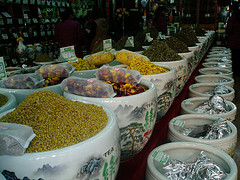Whether it was really about growing crops, rearing livestock and keeping bees or not, Virgil’s Georgics has some wonderfully evocative – and didactic, of course – passages about agriculture. Here’s what lines 197-204 have to say about genebanks (at least in this translation):
I have observed that seeds stored away for a long time, however thoroughly they are looked after still deteriorate, unless the greatest possible human effort is used in selecting the best individually by hand each year. In the same way all things go to the bad, lose their power and slip backwards – it is nature’s law. It’s exactly like when a sculler is trying his utmost to propel his boat up a river with his oars. If he happens to relax his arms for a moment, the current sweeps him away headlong downstream.
 Will the
Will the